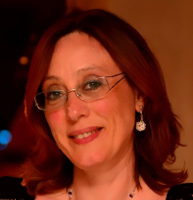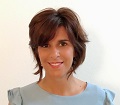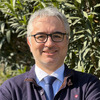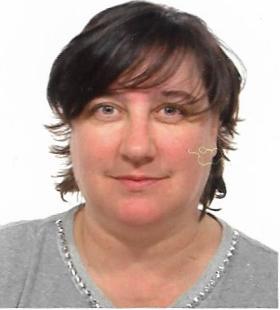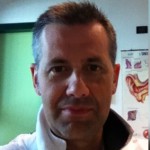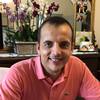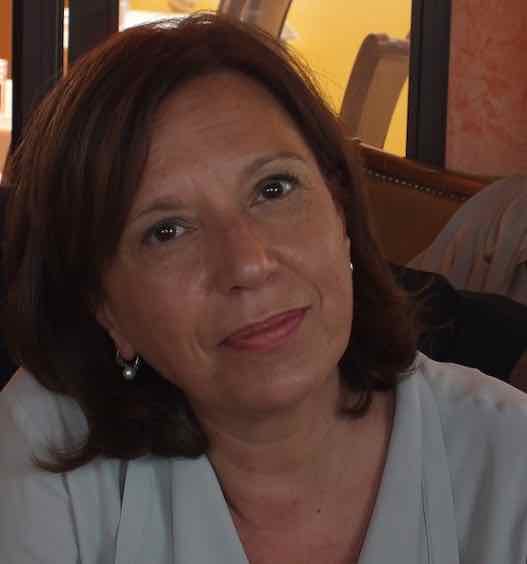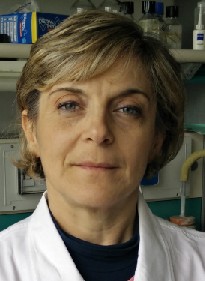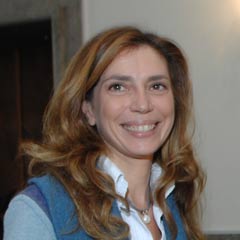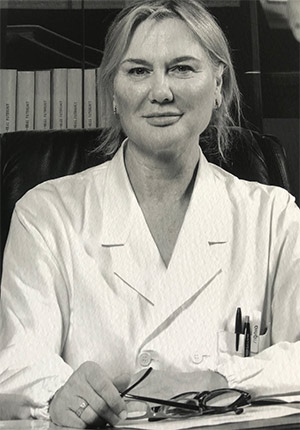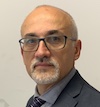Training and Research
PhD Programme Courses/classes - 2023/2024
Clinical Biochemistry and Clinical Molecular Biology
Credits: 5
Language: Italiano
Teacher: Giuseppe Lippi
Virus oncogeni
Credits: 2
Language: Italiano
Teacher: Davide Gibellini
Oral Pathology
Credits: 2
Language: Italiano/English
Teacher: Dario Bertossi
Experimental approaches to study FGFR3-related diseases
Credits: 2
Language: English
Teacher: Patricia Lievens
Meccanismi molecolari nei processi di differenziamento staminale
Credits: 2,5
Language: Italiano
Teacher: Maria Teresa Valenti
Emerging viruses and zoonosis
Credits: 3
Language: Italiano
Teacher: Donato Zipeto
Retrovirus umani: HIV e AIDS
Credits: 2,5
Language: English
Teacher: Alessandra Ruggiero
Molecular Biological Tools For Medicine: Towards "Multi-Omics Age"
Credits: 5
Language: English
Teacher: Alessandra Ruggiero
Bioinformatics applied to genomics
Credits: 2
Language: Italiana e Inglese
Teacher: Maria Romanelli
Translational research in long COVID
Credits: 1,5
Language: Italiano / Inglese
Teacher: Evelina Tacconelli
Global Health: Determinanti di salute, fattori di rischio, stili di vita e disuguaglianze in sanità
Credits: 2
Language: Italiano
Teacher: Stefano Tardivo
R avvanzanto per gli studi del Genoma umano
Credits: 3
Language: English or Italian
Teacher: Giovanni Malerba
Developmental encephalopathies from diagnosis to precision medicine
Credits: 1
Language: Italiano
Teacher: Francesca Darra
Citometria a flusso: principi ed applicazioni
Credits: 2
Language: Italiano/English
Teacher: Maria Scupoli
Genetics of complex traits
Credits: 2
Language: English
Teacher: Giovanni Malerba
central auditory deseses
Credits: 2,5
Language: Italiano
Teacher: Luca Sacchetto
Il disegno degli studi osservazionali
Credits: 3
Language: Italiano/English
Teacher: Maria Elisabetta Zanolin
Bench to bedside infectious diseases - the immunocompromised patient
Credits: 1
Language: Italiano/English
Teacher: Elda Righi
Epidemiologic Methodology
Credits: 3
Language: Italiano/English
Teacher: Maria Elisabetta Zanolin
Oral microbiota and cancer: from clinic to research
Credits: 2,5
Language: Italiano
Teacher: Nicoletta Zerman
Nuove strategie per combattere la resistenza agli antibiotici
Credits: 2
Language: Italiano
Teacher: Annarita Mazzariol
Oral microbiota and cancer: from clinic to research (2023/2024)
Teacher
Referent
Credits
2.5
Language
Italiano
Class attendance
Free Choice
Location
VERONA
Learning objectives
Understanding the connections between oral microbiota and oral cancer. Know the clinical and innovative research aspects.
Prerequisites and basic notions
Microbiology of the oral cavity: anatomy and physiology of the oral cavity, characteristics of the oral microbial ecosystem. Composition of the oral microbiota: list of the main microorganisms present in the oral cavity, including bacteria, viruses and fungi. Role of the oral microbiota in health and disease: interactions between the oral microbiota and the human host, microbial balance and balance disorders. Dental biofilm: formation, structure and function of dental biofilm, role in the pathogenesis of oral diseases such as tooth decay and periodontal disease. Dental diseases associated with oral microbiota: dental caries, periodontal disease, stomatitis, endodontic infections and other oral conditions. Factors influencing the oral microbiota: effects of diet, oral hygiene, tobacco smoking and other factors on the oral microbiota. Impact of the oral microbiota on general health: relationships between oral health and systemic health, for example the connections between periodontal disease and heart disease. Microbiology of opportunistic oral infections: oral infections in immunocompromised patients, such as those with HIV/AIDS or undergoing chemotherapy. Microbiology of neoplastic lesions of the oral cavity: role of oral microorganisms in oral carcinogenesis and precancerous lesions. Role of the host immune system: key role in the defense against oral infections. Compromised immunity or an alteration of the balance of the microbiota as a predisposition to a greater risk of infections.
Program
Methods of studying the oral microbiota: sampling techniques, culture, molecular biology methods such as DNA sequencing and quantitative PCR. Oral microbiota-targeted therapies: Oral microbiota management strategies to promote oral health, such as the use of probiotics, prebiotics, and antibacterial treatments. Recent developments in oral microbiota research: new discoveries, innovative research approaches, and potential applications for the diagnosis and treatment of oral diseases. Transmission and control of nosocomial infections: prevention strategies for oral infections in hospitalized patients, with particular attention to the prevention of post-operative infections. Antibiotics and microbial resistance in the oral cavity: appropriate use of antibiotics in the treatment of oral infections and understanding the implications of microbial resistance in the oral cavity. Appropriate guidelines for the rational use of antibiotics. Interactions between microorganisms present in the oral microbiota and other bacteria or viruses present in the oral cavity and upper respiratory tract. Dysbiosis as a factor favoring the colonization of bacterial pathogens or the compromise of the local immune system. Microorganisms involved in upper respiratory tract infections and their influence on the development of tumors. The development of cancer: interaction between genetic, environmental and behavioral factors. Cancer Prevention. Early diagnosis of oral cancer. Notes on cancer treatment. Conventional therapies and symptom management and support. Ongoing research and future perspectives: Understanding the role of the oral microbiota. Future studies will investigate the interaction between the oral microbiota, the host immune system and the onset of oral cancer, in order to develop more effective prevention and treatment strategies.
Bibliography
When and where
interactive lessons in a clinical setting on the patient. Teaching material provided on request also regarding prerequisites.
Learning assessment procedures
written and oral exam. preparation of a scientific publication
Assessment
1. ability to relate to the patient 2. ability to clinically and therapeutically characterize the patient 3. adequacy in answering 10 open written questions 4. scientific paper presented
Criteria for the composition of the final grade
out of thirtieths equally distributed considering the 4 evaluation criteria
PhD school courses/classes - 2023/2024
Please note: Additional information will be added during the year. Currently missing information is labelled as “TBD” (i.e. To Be Determined).
PhD students must obtain a specified number of CFUs each year by attending teaching activities offered by the PhD School.
First and second year students must obtain 8 CFUs. Teaching activities ex DM 226/2021 provide 5 CFUs; free choice activities provide 3 CFUs.
Third year students must obtain 4 CFUs. Teaching activities ex DM 226/2021 provide 2 CFUs; free choice activities provide 2 CFUs.
Registering for the courses is not required unless explicitly indicated; please consult the course information to verify whether registration is required or not. When registration is actually required, no confirmation e-mail will be sent after signing up.
Teaching Activities ex DM 226/2021: Linguistic Activities
INFORMATION: ENGLISH FOR ACADEMIC PRESENTATION SKILLS [Arts and Humanities]
Credits: 2,5
Language: English
INFORMATION: ENGLISH FOR ACADEMIC PRESENTATION SKILLS [Law and Economics]
Credits: 2,5
Language: English
INFORMATION: ENGLISH FOR ACADEMIC PRESENTATION SKILLS [Life and Health Sciences - 1 st Session]
Credits: 2,5
Language: English
INFORMATION: ENGLISH FOR ACADEMIC PRESENTATION SKILLS [Life and Health Sciences - 2 nd Session]
Credits: 2,5
Language: English
INFORMATION: ENGLISH FOR ACADEMIC PRESENTATION SKILLS [Natural Sci. and Engineering-1st Session]
Credits: 2,5
Language: English
INFORMATION: ENGLISH FOR ACADEMIC PRESENTATION SKILLS [Natural Sci. and Engineering-2nd Session]
Credits: 2,5
Language: English
INFORMATION: ENGLISH FOR ACADEMIC WRITING SKILLS [Arts and Humanities]
Credits: 2,5
Language: English
INFORMATION: ENGLISH FOR ACADEMIC WRITING SKILLS [Law and Economics]
Credits: 2,5
Language: English
INFORMATION: ENGLISH FOR ACADEMIC WRITING SKILLS [Life and Health Sciences - 1 st Session]
Credits: 2,5
Language: English
INFORMATION: ENGLISH FOR ACADEMIC WRITING SKILLS [Life and Health Sciences - 2 nd Session]
Credits: 2,5
Language: English
INFORMATION: ENGLISH FOR ACADEMIC WRITING SKILLS [Natural Sci. and Engineering-1st Session]
Credits: 2,5
Language: English
INFORMATION: ENGLISH FOR ACADEMIC WRITING SKILLS [Natural Sci. and Engineering-2nd Session]
Credits: 2,5
Language: English
Teaching Activities ex DM 226/2021: Research management and Enhancement
SEMINARIO AVANZATO SULLE RISORSE BIBLIOTECARIE PER LA RICERCA [Arts and Humanities]
Credits: 2,5
Language: Italian
Teacher: Donatella Boni
SEMINARIO AVANZATO SULLE RISORSE BIBLIOTECARIE PER LA RICERCA [Law and Economics]
Credits: 2,5
Language: Italian
Teacher: Luisella Zocca
SEMINARIO AVANZATO SULLE RISORSE BIBLIOTECARIE PER LA RICERCA [Scientific Area]
Credits: 2,5
Language: Italian
Teacher: Elena Scanferla
Teaching Activities ex DM 226/2021: Statistics and Computer Sciences
INTRODUCTION TO PROBABILITY (MODULE I)
Credits: 1
Language: English
Teacher: Marco Minozzo
INTRODUCTION TO PROBABILITY (MODULE II)
Credits: 1
Language: English
Teacher: Marco Minozzo
BASIC LEVEL STATISTICS
Credits: 2,5
Language: English
INTRODUCTION TO STATISTICAL INFERENCE
Credits: 1
Language: English
Validità e affidabilità delle misure e dei test diagnostici
Credits: 0,5
Language: English
Teacher: Alessandro Marcon
BASIC LEVEL STATISTICS
Credits: 2,5
Language: Italian
Statistical analysis with R - module I
Credits: 1
Language: Italian
Teacher: Erica Secchettin
Generalized linear models: logistic regression, loglinear model, Poisson model
Credits: 2
Language: English
Teacher: Lucia Cazzoletti
Disegno dello studio nella ricerca osservazionale e sperimentale
Credits: 1,5
Language: English
Teacher: Alessandro Marcon
Calcolo della numerosità campionaria in funzione di una precisione o potenza statistica prefissata
Credits: 1
Language: English
Teacher: Giuseppe Verlato
Introduzione alla meta-analisi per la ricerca biomedica (revisione della letteratura, raccolta dei dati, costruzione del database)
Credits: 1
Language: English
Teacher: Giuseppe Verlato
Applicazioni della meta-analisi in campo epidemiologico e medico
Credits: 1
Language: English
Teacher: Giuseppe Verlato
Analisi di sopravvivenza: test log-rank, curve di sopravvivenza di Kaplan-Meier, modello di regressione di Cox
Credits: 1,5
Language: English
Teacher: Simone Accordini
INTERMEDIATE STATISTICS [Recommended for Human Sciences]
Credits: 2,5
Language: English
INTERMEDIATE STATISTICS [Tutti i corsi di studio]
Credits: 2,5
Language: English
Statistical analysis with R - module II
Credits: 2
Language: Italian
Teacher: Erica Secchettin
Teaching Activities: Free choice
PROTECTING PSYCHOLOGICAL WELL-BEING IN THE PHD PROGRAM: WHAT DO WE NEED TO CONSIDER FOR BEING A GOOD SCIENTIST: BEST PRACTICE AND THE ETHICS OF SCIENCE
Credits: 1
Language: inglese
Teacher: Paola Cesari
QUANDO LA RICERCA SI FA ETICA (PERCORSO ORGANIZZATO E FINANZIATO DAL TEACHING AND LEARNING CENTER DI UNIVR)
Credits: 2
Language: Italian
Teacher: Roberta Silva
IMPARA IL MARKETING DIGITALE
Credits: 1,5
Language: English
Italian Poetry abroad
Credits: 1
Language: Italiano
Teacher: Massimo Natale
COSTRUISCI IL TUO BUSINESS MODEL CANVAS
Credits: 1,5
Language: English
APPROCCI E METODOLOGIE PARTECIPATIVE NELLA RICERCA CON GLI ATTORI DEL TERRITORIO
Credits: 1,5
Language: Italian
Teacher: Cristiana Zara
DOING INTERVIEWS IN QUALITATIVE RESEARCH
Credits: 1,5
Language: English
Teacher: Chiara Sità
LA COMUNICAZIONE UMANISTICA: OPPORTUNITA' E RISCHI
Credits: 1
Language: Italiano
DIFFERENTIAL DIAGNOSIS OF DEMYELINATING DISEASES OF THE CENTRAL NERVOUS SYSTEM
Credits: 2
Language: English
Teacher: Alberto Gajofatto
IL SONNO E I SUOI DISTURBI: FOCUS SULLE PARASONNIE E I DISTURBI DEL MOVIMENTO IN SONNO
Credits: 1
Language: English
Teacher: Elena Antelmi
IMAGING TECHNIQUES FOR BODY COMPOSITION ANALYSIS
Credits: 1
Language: English
Teacher: Carlo Zancanaro
OPEN SCIENCE: THE MIGHTY STICK AGAINST "BAD" SCIENCE
Credits: 2
Language: English
Teacher: Alberto Scandola
THE EMPIRICAL PHENOMENOLOGICAL METHOD (EPM): THEORETICAL FOUNDATION AND EMPIRICAL APPLICATION IN EDUCATIONAL AND HEALTHCARE FIELDS
Credits: 2
Language: English
THE PATHWAY OF OXYGEN: CAUSE OF HYPOXEMIA
Credits: 1
Language: English
Teacher: Carlo Capelli
Faculty
 elda.righi@univr.it
elda.righi@univr.it
PhD students
No people are present. 40° Ciclo not started.
Loading...
Guidelines for PhD students
Below you will find the files that contain the Guidelines for PhD students and rules for the acquisition of ECTS credits (in Italian: "CFU") for the Academic Year 2023/2024.

 +39 045 8027657
+39 045 8027657

